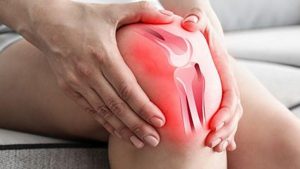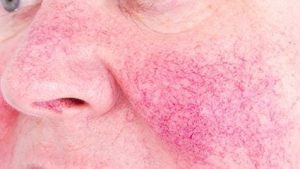AS I PREPARE to apply for a PhD program and fantasize about a career at a prestigious research institution or blazing campaign trails while getting published regularly in journals and newspapers, I’m haunted by a conversation I had with a friend a few years back. He advised me to temper my career goals; I can’t expect to get too far, he said, because of my lower-middle-class background.
I thought that was ridiculous. Who would be so trivial? And besides, how would anybody even know?
It took me a short while to figure out that my mouth gives a fair amount of detail about my background – and not through the words that come out of it, but through the crowded tenants rooted within it.
The state of my teeth has been a concern for me since adolescence. My concern was solely aesthetic in nature at first, but quickly became functional as well – chewing can be a challenge. In adulthood, I learned that my crowding – which is becoming incrementally worse as you read this, by the way – predisposes me to cavities and gum disease. Brush and floss as I may, my damn teeth will continue to fight each other for scarce real estate.
Last year, I went to an orthodontist for an Invisalign consultation. He informed me that he considered braces to be the only viable option. After meeting with the office’s financial consultant, I learned that the least expensive deal I could get was $6,000 paid over the course of two years. That’s about 1/6th of my income over a two-year period.
I’m one of the 40% of Americans without dental coverage. And even if I tried to change my career in order to obtain that coverage, it would likely only cover a fraction of the cost of orthodontics. Now, along with cosmetic and functional and health concerns, I’m also facing the prospect that the anarchy in my mouth will negatively impact my ability to fulfill my career goals.
This isn’t just paranoia or self-consciousness. The judgments some people make based on a person’s teeth are far-reaching. A Kelton Research perception study of over 1,000 Americans showed some alarming conclusions people draw about others’ personality and abilities from the straightness of their teeth. Some gems of the study include respondents’ perceptions that people with straight teeth are:
- 45% more likely to be hired than a crooked-toothed candidate with similar qualifications;
- 58% more likely to be successful
- 58% more likely to be wealthy
- 38% more likely to be smart
- More trustworthy (respondents were 73% more likely to trust someone with straight teeth than with a good outfit, car, or job)
- More datable (people with straight-toothed profile pictures on dating sites were seen as 57% more likely to land a date, whereas 38% of respondents would consider not going beyond a first date with someone whose teeth are crooked)
That hurt quite a bit.
There’s no way to prove that these biases among the general public affect hiring decisions, but there’s reason to suspect (and in my case, fear) that they do. The impact of appearance on snap judgments is significant, and one’s teeth are an important part of appearance (according to the Kelton study, it’s the first thing that around one-third of respondents noticed about a person’s face). “Poor personal appearance” was cited as the primary reason for not granting applicants a second interview in a survey of 150 employers – a reason deemed more important than being late for no reason or being hostile. According to research by the Center for Talent Innovation, stained or crooked teeth are the appearance factors that most challenge “executive presence” – a term denoting perceived leadership capability.
I often hear people tout the merits of hard work and determination as the harbingers of success. There’s some truth to that, but that truth is limited. We carry markers of our history in a variety of ways, and there are all-too-many who would, with a snap judgment, confine us to the limits of our past. When people judge our characters and competencies based on the alignment of our teeth, that could get in the way of our getting ahead.
I’m going to apply for this PhD program, and I’m going to continue fantasizing about and working toward my career ideals. I just hope those I meet who stand as gatekeepers between where I am and where I’d like to be choose to judge me more by what comes out of my mouth than by the configuration of what’s inside it.

















